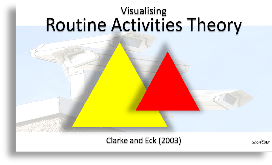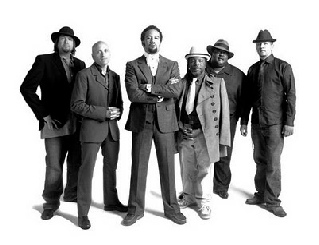|
|
|
|
|
Routine Activities Theory has been described as a key theoretical contribution to the development of Situational Crime Prevention strategies and techniques. In broad terms it sees crime as the outcome of both “opportunity” (Mayhew, 1976; Clarke, 1988) and “routine activities” (Cohen and Felson 1979) and represents, for Felson and Boba (2010),: “A theory of how crime changes in response to larger shifts in society”. While the general theory can appear quite complex to students – and contains numerous developments and qualifications – at root it offers a fairly simple outline of the relationship between, on the one hand, potential offenders and, on the other, the social controls that may exist to deter offending. This Presentation provides a visual representation of the factors that contribute to both offending and crime prevention, within the context of routine activities theory. |

